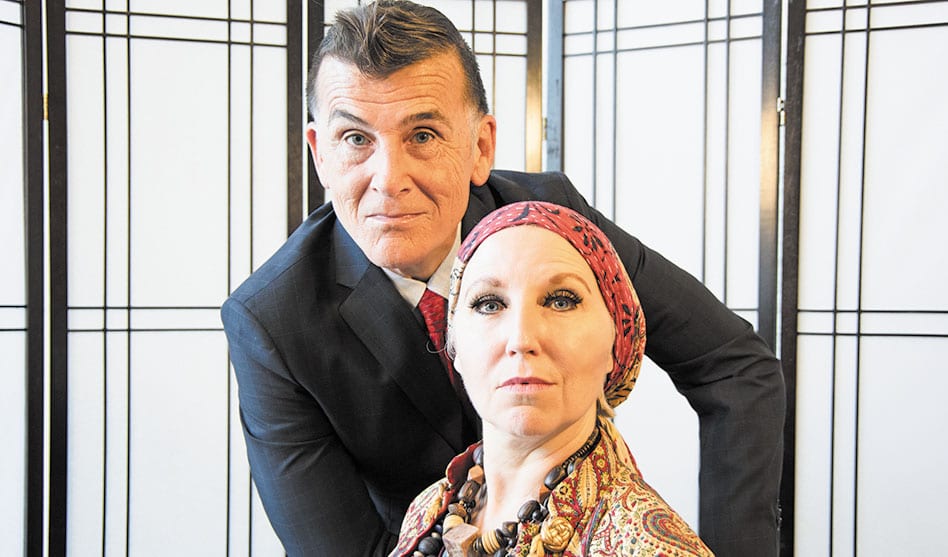Two absurdist one-acts delve into the American pysche with humor and sex appeal
ARNOLD WAYNE JONES | Life+Style Editor jones@dallasvoice.com
ALBEE: TWO ON THE AISLE
Bath House Cultural Center, 521 E. Lawther Drive. Through Oct. 23. Thursdays–Saturdays at 8 p.m., select 2 p.m. matinees. $17–$20. WingSpanTheatre.com
…………………………..
Most comedies — especially those written nowadays, for stage, film and TV — don’t really make much sense. Characters do stupid things because stupid leads to funny consequences. They rely on their audiences not paying too much attention. (I can’t count how many times I have been accused of “over-thinking” a comedy by people happy to be lost in the inanity of it all.)
It’s refreshing, then, to encounter a comedy that tries not to make sense … but does so smartly — so smartly, that you cease paying attention at your peril. That is the world of absurdism.
Considering that Edward Albee’s rep is based largely on his hyper-realistic masterpiece Who’s Afraid of Virginia Woolf, it’s easy to forget he’s also America’s foremost absurdist, especially in his one-acts like The American Dream and The Sandbox, which are being revived right now by WingSpan Theatre.
WingSpan does absurdism well — Albee especially. His Marriage Play, The Play About the Baby and Tennessee Williams’ The Gnadiges Fraulein were highlights of recent theater seasons. This duet isn’t quite as strong as those, but deliciously entertaining nonsense.
Only they’re not nonsense. Albee — gay, adopted, bitter — has issues. Both plays feature basically nameless characters: Mommy (Lulu Ward), Daddy (Barry Nash), Grandma (Elly Lindsay), Young Man (Austin Tindle). This is a view of the nuclear family in meltdown.
Rhythms more than plot (plot?) provide the fodder for a couple’s obsession with materialism (their house is a hodgepodge of American flag colors, deconstructed and turned subversively critical). With annoyingly inconsequential small talk, they chatter away about the color of a hat and the content of mysterious boxes and what to do with the old lady. As with David Lynch, the logic, if any, is dreamlike — or, more accurately, nightmarish, with laughs.
Ward is ideal at conveying genteel villainy: Behind a smile cracking with anger, she exudes threatening volatility. Nash, perfectly impassive, represents a dire view of manhood.
Tindle, in contrast, captures the hearty beauty of the male form. With placid sex appeal — especially in The Sandbox, where he spends 15 minutes performing yoga in tight-fitting ‘50s-era swim trunks — he’s unattainable desire incarnate.
At least I think so. Part of the attraction of absurdism is the attraction of poetry: You can read into it what resonates with you. Director Susan Sargeant lets her solid cast loose on the material, toying with it and the audience. Don’t worry if you don’t understand it all. If it doesn’t make you laugh, it may scare the hell out of you. And feel free to over-think it. That’s what art is supposed to be about.
This article appeared in the Dallas Voice print edition October 15, 2010.

















